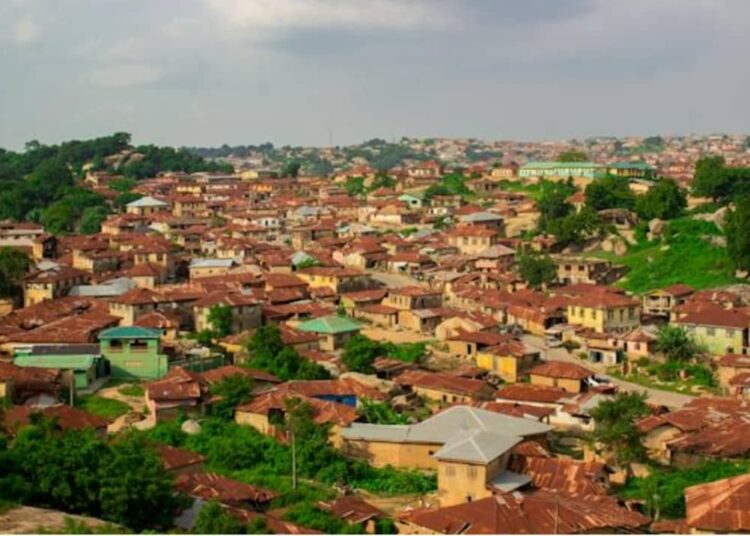Nigeria, often hailed as the “Giant of Africa,” boasts an extensive landmass, a burgeoning population, and a tapestry of rich cultural range.
Within this complicated mosaic, democracy emerges as a linchpin, essential for coping with the myriad ethnicities, languages, and traditions that coalesce inside its borders.
This extensive exploration delves into the historical roots, democratic evolution, and modern-day demanding situations and possibilities intricately shaping Nigeria’s political panorama.
Historical Perspective
Pre-Colonial Era
Nigeria’s pre-colonial records are an epoch marked by the aid of various indigenous governance systems.
Flourishing throughout the location have been diverse ethnic groups, nurturing its unique customs and political systems, like if you buy villa Dubai.
From the Yoruba kingdoms in the southwest to the Hausa metropolis-states in the north and the Igbo groups in the southeast, Nigeria’s political material was woven with a wealthy tapestry of diversity.
Colonial Influence
The 19th-century arrival of British colonial forces extensively altered Nigeria’s political landscape.
The imposition of Western-fashion governance structures and the amalgamation of diverse ethnic territories set the degree for the demanding situations and possibilities that might outline the state’s future.
The Nigerian Federation
Formation and Structure
Gaining independence in 1960, Nigeria followed a federal gadget of governance. This shape aimed to deal with the various ethnic and cultural companies inside the US, with electricity allotted between the imperative government and character states.
Ethnic and Cultural Diversity
Home to over 250 ethnic organizations, Nigeria boasts a wealthy range of cultures and languages. The foremost ethnic agencies include the Hausa-Fulani, Yoruba, and Igbo.
This diversity, contributing to the nation’s cultural richness, additionally poses specific demanding situations in attaining political concord.
Democratic Evolution
Independence and the First Republic
Nigeria’s first flavor of democracy accompanied independence in 1960. However, the early years of the First Republic were marked by political instability, ethnic tensions, and coups, leading to intervals of navy rule.
Military Rule
The interruption of democracy utilizing navy coups in Nigeria similarly complicated the political panorama.
Military regimes confronted challenges maintaining stability and fostering development, fostering a longing to return to civilian rule.
Return to Democracy
In 1999, Nigeria returned to civilian rule, marking an extensive milestone in its democratic evolution.
A new charter outlining the framework for the modern-day federal machine and multi-party political structure was adopted.
Contemporary Political Landscape
Political Parties
Primary parties, the All Progressives Congress (APC) and the People’s Democratic Party (PDP), dominate Nigeria’s political spectrum.
The multiparty gadget allows for diverse political ideologies and representation, contributing to the control.
Power Dynamics
Despite the federal structure, demanding situations persist in equitable strength-sharing in some regions.
Ongoing efforts are directed toward addressing historic imbalances and promoting national team spirit through inclusive guidelines.
Challenges and Opportunities
Ethno-Religious Tensions
Ethno-spiritual tensions in Nigeria have historical roots, with periodic conflicts emerging between one-of-a-kind groups.
Strategies for selling cohesion and tolerance embody interfaith dialogue, cultural exchange applications, and educational tasks specializing in diversity.
Economic Disparities
Economic disparities amongst regions pose an assignment to countrywide improvement. Policies geared toward bridging the monetary gap, infrastructure projects, and social welfare applications are crucial for a balanced increase.
Achievements and Success Stories: Nurturing Democracy and Cultural Resilience
Democratic Milestones: A Testament to Resilient Governance
Nigeria stands as a beacon, having navigated through peaceful transitions of electricity. These milestones testify to the resilience of the country’s democratic establishments.
Nigeria has effectively conducted democratic elections over the years, asserting its commitment to governance standards and fostering a political environment characterized by balance and continuity.
The nonviolent handovers of power in Nigeria highlight a maturing democratic method, showcasing the state’s potential to uphold the beliefs of equity and transparency and appreciate the rule of thumb of regulation.
Political power shifts palms without upheaval, reinforcing the population’s acceptance of the democratic gadget.
Cultural Celebrations: Weaving the Tapestry of National Identity
Beyond the political sphere, Nigeria takes satisfaction within the colorful tapestry of its diverse cultural heritage.
Cultural celebrations manifested via fairs and occasions play a pivotal function in shaping and reinforcing the feeling of national identity.
These celebrations cross beyond being mere festivities; they serve as essential threads inside the complicated cloth that binds Nigeria’s diverse ethnic companies right into a unified whole.
The richness of Nigeria’s cultural variety finds expression in activities that celebrate traditions, languages, tunes, dance, and art.
From the Durbar Festival in the north to the Osun-Osogbo Festival in the southwest and the New Yam Festival in the east, every celebration is a testament to the resilience of cultural practices that have persevered over generations.
Conclusion
Nigeria’s political tapestry represents a complex interweaving of history, democracy, and cultural variety.
Challenges and achievements have marked the journey from pre-colonial governance structures to the existing federal device.
As Nigeria continues to navigate the course of democracy, inclusivity, and tolerance remain paramount for a united and prosperous future, ensuring that the state’s diversity turns into a power supply in preference to the department.
We’ve got the edge. Get real-time reports, breaking scoops, and exclusive angles delivered straight to your phone. Don’t settle for stale news. Join LEADERSHIP NEWS on WhatsApp for 24/7 updates →
Join Our WhatsApp Channel










